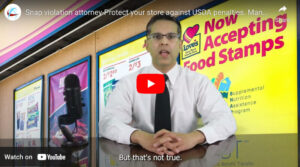Low-Income Households in Texas Would Lose Food Aid Under Proposed SNAP Cuts
The budget resolution that the House plans to take up this week directs the House Agriculture Committee to cut programs in its jurisdiction by at least $230 billion through 2034, with these cuts expected to come largely or entirely from the Supplemental Nutrition Assistance Program (SNAP) and to be used to help pay for tax cuts for the wealthiest business owners and households. The narrower budget resolution adopted by the Senate instructs the Senate Agriculture Committee to cut at least $1 billion over the same period, though the actual cuts sought through this process and in a second budget resolution expected later this year could be much deeper. Substantial cuts to SNAP would mean households with low incomes in every state would lose support they need to put food on the table, worsening food insecurity and hardship. (See Table 1.)
The specific policies the House and Senate Agriculture Committees will pursue to make these cuts are still unknown. But one thing is clear: lawmakers cannot cut $230 billion — or anything close to that amount — from SNAP without slashing benefits, restricting eligibility, or some combination of both. Republican lawmakers could make these benefit or eligibility cuts directly through changes to federal SNAP policy. But they could also enact them indirectly by shifting costs to states, forcing state officials to decide whose benefits will be cut and by how much.
Regardless of how Republican lawmakers enact a cut of this magnitude, this would slash more than 20 percent from a program that helps more than 40 million people, including 1 in 5 children, afford groceries.
Lawmakers may use several harmful options to impose these deep SNAP cuts, including:
Immediately cutting benefits for all SNAP participants by an average of $1.40 per day. Lawmakers could cut SNAP by $230 billion by rolling back the 2021 update to the Thrifty Food Plan (TFP) and permanently freezing its cost outside of annual inflation adjustments, based on a recent Congressional Budget Office (CBO) estimate. The 2021 update to the TFP, which is the basis for SNAP benefit levels, adjusted the real purchasing power of SNAP benefits for the first time in nearly 60 years to account for changes in dietary guidance and how low-income households shop for and prepare food. The resulting increase in SNAP benefits lifted more than 2 million people, including nearly 1 million children, above the poverty line when it went into effect, with the greatest poverty-reducing impact for Black and Hispanic individuals.
Reversing this update and restricting future increases would slash SNAP benefits for all participants immediately upon taking effect, with the cut growing deeper over time. The average SNAP benefit in fiscal year 2026 is projected to be only $6.40 per person per day. Under this proposal, each SNAP participant would lose an average of $1.40 per day initially, cutting the daily average benefit to only $5.00 per person. By 2034, this policy would slash the average daily benefit from $8.00 per person per day to only about $5.85, based on our analysis of CBO’s projections. This would make it more difficult for more than 40 million people to afford groceries, 90 percent of whom are in households with children, older adults, or people with disabilities.
Taking SNAP away from more than 9 million low-income people in an average month. If lawmakers don’t want to cut SNAP benefits — as Rep. GT Thompson, chair of the House Agriculture Committee, has indicated — they could instead make these cuts by ending SNAP eligibility entirely for certain participants. But reaching $230 billion in cuts solely through reduced participation would require removing more than 9 million people receiving the average benefit from SNAP in a typical month. Because nearly all SNAP households include a child, an older adult, or someone with a disability, it would not be possible to completely protect those households from an eligibility cut this massive.
Even existing proposals that would take food away from some households with children, older adults, or people with disabilities would not cut enough to meet the $230 billion target. For example, a proposal from Rep. Dusty Johnson to dramatically expand SNAP’s existing harsh work requirement could take away food assistance from millions of people. Currently, SNAP participation is limited to only three months in a three-year period for most adults aged 18 through 54 without children in the home unless they can demonstrate they are working at least 20 hours per week or prove they qualify for an exemption, such as having a disability.
Johnson’s proposal would expand this punitive work requirement to older adults up to age 65, parents and grandparents in households with children aged 7 or older, veterans, people experiencing homelessness, youth who have aged out of foster care, and people who live in areas without sufficient jobs. CBO previously estimated that a similar policy would take away SNAP from 3 to 3.5 million people in an average month.
But the harm of this policy would not be limited to the individuals being cut off from SNAP; everyone in their households would also receive less help to buy groceries. For example, more than 4 million children between the ages of 7 and 17 live in households that would be at risk of losing some amount of food assistance under this proposal.
But even this draconian policy would make only a fraction of House Republicans’ $230 billion target, CBO estimated. If lawmakers pursue it in reconciliation legislation, they would have to combine it with other harmful policies, like taking help away from even more people, to reach their deep cut target.
Multiple studies have shown that SNAP’s work requirement takes food away from people without leading to increased employment or earnings. That suggests that the vast majority of those 3 to 3.5 million people would lose the assistance they need to buy groceries without any improvement in their employment prospects. Most SNAP participants who can work do, either while they are receiving SNAP or within a year. But because this requirement substantially increases red tape for participants and state agencies, even people who are working can be cut off SNAP if they can’t successfully document enough hours. Similarly, people who should not be subject to the work requirement (e.g., because they have a disability) can lose benefits if their state fails to screen them for an exemption.
Shifting benefit costs to states — which would force them to cut benefits, eligibility, or both. Because the benefit or eligibility cuts required to achieve $230 billion in SNAP cuts would likely be deeply unpopular, Republican lawmakers may force state officials to make them instead. States pay half of the cost of administering SNAP, but the federal government funds 100 percent of benefit costs, which make up the vast majority of program costs. Virtually all states must balance their budgets each year, so shifting even a small portion of SNAP benefit costs to states would require states to raise revenue or cut funding for other programs or services. This would strain state budgets and likely force states to cut SNAP benefits, eligibility, or both.
This radical change in SNAP’s funding structure would abandon the long-standing national commitment to provide low-income households a SNAP benefit sufficient to afford a basic healthy diet. It could also create substantial disparities between states. States with lower incomes and higher rates of poverty would likely have a much harder time funding a share of SNAP benefit costs than wealthier states, exacerbating hardship in states that already struggle with high rates of food insecurity and poverty.
A cost-sharing requirement also would be particularly harmful during recessions, when states would need to provide even more state funds to accommodate increased need as more people lose income and become eligible for SNAP at the same time state revenues are declining. In a weak economy, each $1 in additional spending on SNAP benefits generates $1.54 in economic activity when households use their benefits to shop at local stores in their communities. But states may lack the funds to provide those additional resources, resulting in increased food insecurity, undermining SNAP’s ability to act as an economic stimulus, and hindering economic recovery.
Lawmakers could not make $230 billion in SNAP cuts solely through program integrity measures. Cases of intentional fraud by participants or SNAP authorized retailers are relatively rare. Most overpayments identified through SNAP’s uniquely rigorous quality control system are the result of unintentional mistakes by eligibility workers or households — not fraud. Even if lawmakers could somehow eliminate overpayments, which is not realistic, there aren’t enough of them to add up to a $230 billion cut.
Other important measures that would strengthen program integrity, such as enhancing the security of EBT cards to prevent electronic benefit theft, have associated implementation costs that would likely modestly increase federal spending.
Deep SNAP cuts would worsen food insecurity, hurt local businesses, and weaken SNAP’s ability to boost jobs in every state. SNAP is highly effective at reducing food insecurity and poverty, and research links SNAP participation to better health outcomes and lower health care costs.
Regardless of how lawmakers impose $230 billion or more in cuts to SNAP, these cuts would make it harder for low-income families in every state to afford groceries, worsening food insecurity and hardship. Slashing low-income households’ grocery budgets would also reduce revenue for thousands of businesses in every state, with ripple effects throughout the food supply chain.
Low-Income Households in Texas Would Lose Food Aid Under Proposed SNAP Cuts





Recent Comments